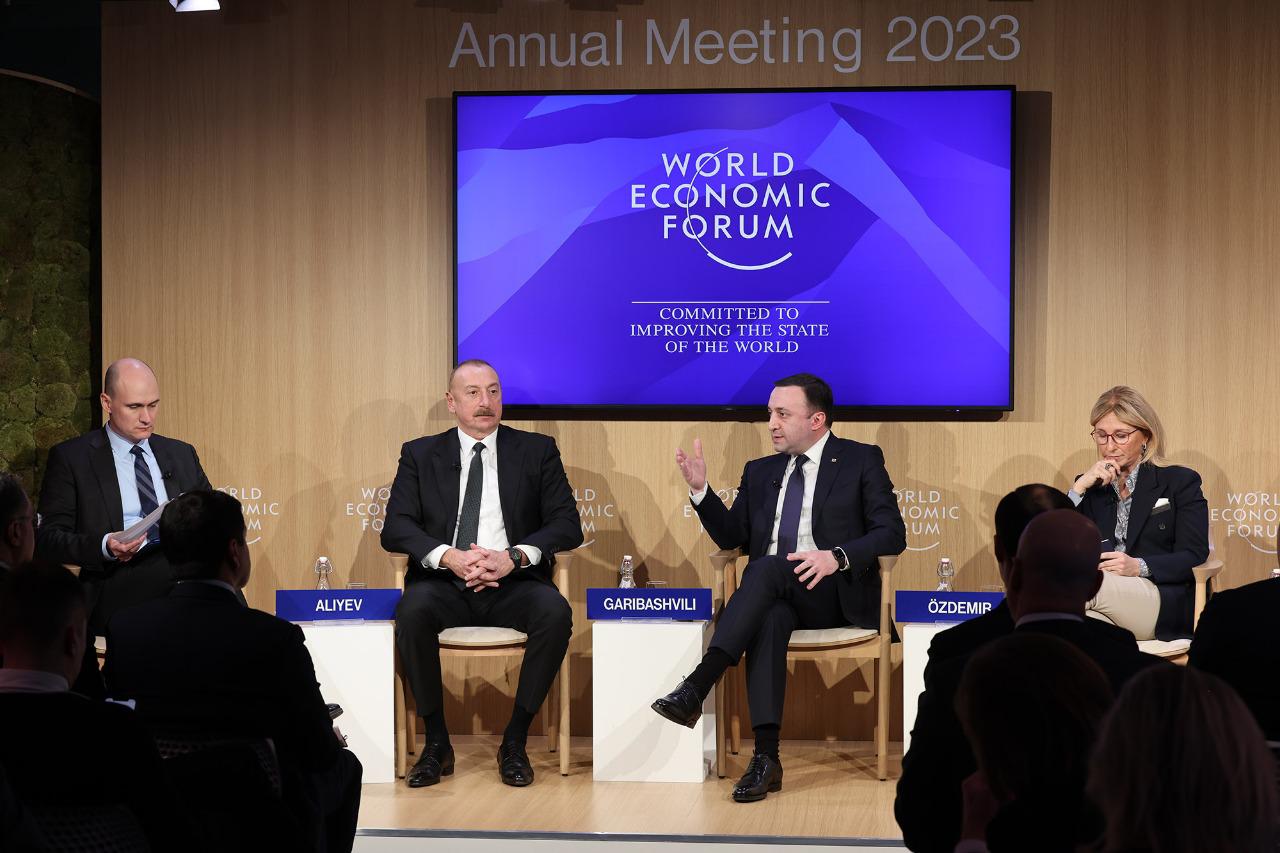Speaking at the World Economic Forum (WEF), Prime Minister Irakli Garibashvili outlined the Government of Georgia’s strategy to improve regional connectivity between Black Sea countries and Europe.
The Prime Minister spoke at a panel discussion on “Eurasia’s Middle Corridor: From Pathway to Highway” on his government’s plan for large investments in renewable energy, including solar and wind energies. He also spoke about utilizing Georgia’s “strategically important” location to open access to cheap, clean Azeri energy.
Outside of securing green energy for Europe, the Middle Corridor will provide exciting opportunities for the U.S. and global companies by opening new connections with Central Asia—unlocking a market of over 2 billion people for business. With over 300 American companies already operating in Georgia, U.S. companies are well-situated to take advantage of the new corridor.
At the WEF, Prime Minister Garibashvili went over Georgia’s individual efforts to bolster connectivity between Georgia and the region. In addition to building new roads and facilities, the Prime Minister announced that the highly anticipated Anaklia deep-sea port on Georgia’s Black Sea coast will be developed with the state assuming 51% of its ownership. The Government will further select investors through an international competition to fill the remaining 49 percent, Garibashvili stated.
Georgia has already made incredible progress in realizing its potential as a regional connector, having recently concluded a multilateral agreement with EU participation on an undersea electricity cable that will supply clean Caspian Sea energy to Europe. Garibashvili highlighted that Georgia has “one of the best” business environments in the world and ranks in the top ten easiest countries for doing business.
Such efforts, in addition to an ambitious reform agenda to further align with the European Union, have drawn Georgia and Europe closer than ever before. As Georgia’s foremost foreign policy objective, the government applied for EU Candidate Status last year and has already successfully completed 4 of the EU’s 12 recommendations to achieve the goal by the end of the year. significant progress has been made in other areas as indicated by the Commission Analytical report on Georgia’s alignment with the EU acquis.

